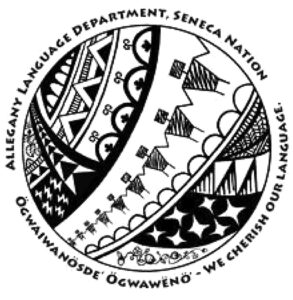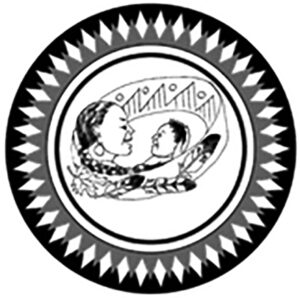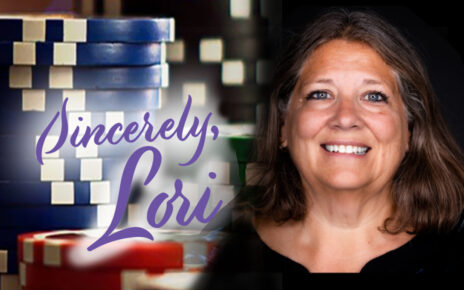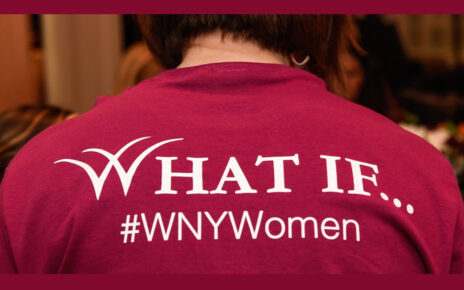Submitted by Ja:no’s Bowen, Allegany Language Director
Over the last ten years, the Seneca Nation has created the Allegany Language, Cattaraugus Language, and Immersion Departments, as well as the Men’s and Women’s Ceremonial Programs. Additionally, the Faith Keepers School has become part of the Seneca Nation. It no longer operates as a nonprofit organization. This might seem like chaos, but in reality, the language programs function in collaboration with one another. Each one brings a different skillset to the table. Our collective mission is to create functional speakers of the Seneca language whether at work, in the Longhouse, or in the home. All of these groups are important to bringing us a step closer to our collective goal.

The Immersion Department takes beginner, adult learners and gets them to the intermediate – advanced proficiency level by placing them in a two-year immersive learning environment. The department also runs an immersive language nest for its adult students and their children. The nest aims to assist Immersion students’ households in becoming an environment where Seneca is the primary means of communication. The department also develops immersive learning curriculum and resources. For more information, contact Amber Bennett, Acting Director at (716) 532-4900, ext. 8920, amber.bennett@sni.org or Nicole Martin, Program Assistant at nicole.martin@sni.org.

The Allegany Language Department offers language instruction to community members through the Allegany Office of the Aging and an online class for novice mid learners. It also provides tutoring to employees of other Seneca Nation departments. In addition to providing Seneca language instruction, the department digitizes language resources for easier access and long-term archiving, provides professional development workshops for language teachers and apprentices, maintains the website www.senecalanguage.com, offers translation services, and develops online content. For more information, contact the Director, Ja:no’s—Janine Bowen at janos.bowen@sni.org or Digital Media Developer, James Crane at (716) 945-1790 ext. 3173.

The Cattaraugus Language Department offers community craft, culture, and language classes. Pre-pandemic, it ran an afterschool culture and language nest and summer program, which it intends to run again. In addition to offering community language and culture programming, the department runs a master-apprentice program, where department apprentices work with first-language speakers. Moreover, the department releases a Seneca language newscast twice a month as part of its resource development activities. For more information stop by the Stanley Sully Huff Heritage Center at 12857 Rte. 438, Irving, NY 14081 or call 532-8161.

The Faith keepers School runs a Montessori language nest centered on Longhouse teachings. The school’s mission is to foster independent, confident, and socially responsible citizens who are exposed to the traditional teachings of Gaiwi:yo:h and the traditions of the Seneca people. The school works with Immersion students and teachers to assist them in creating an immersive Seneca language environment. For more information contact Darlene Miller, School Administrator or Autumn Crouse, Lead Teacher at (716) 354-2219.
The Men’s Ceremonial Program teaches apprentices and community members ceremonial songs and speeches, the roles of men within the Longhouse. It also provides instruction on the traditional way of life, which includes making medicine masks, headdresses, rattles, drums, and plant-based medicines, as well as hunting and fishing. The Men’s Ceremonial Program also assists the community with holistic health and well-being based on Hodinöhšö:nih teachings. For more information contact Blaine Tallchief at (716) 354-2166.
The Women’s Ceremonial Program teaches apprentices and community members ceremonial songs and speeches, the roles of women within the Longhouse, and the traditional way of life: gardening, sewing, moccasin-making, cooking, making plant-based medicines, etc. The Women’s Ceremonial Program also assists the community with holistic health and well-being based on Hodinöhšö:nih teachings. For more information contact Alexia John at (716) 354-2141.
For adults who intend to commit a few years to learning how to speak Onöndowa’ga:’ Gawë:nö’—the Seneca language, the first step is applying to the Immersion Program. The required entry exam demonstrates the root word method used to assist students in becoming fast learners. Study materials for this exam can be found at https://senecaimmersiongroup.org/. Once students have been granted admission into the program, they are hired by the Seneca Nation for a 2 – 3-year period of study. In order to maintain their place in the program, immersion students must show continuous progress in their proficiency assessments. For more information on the assessments, go to www.actfl.org. Year 1 students start from Novice Low and work toward Novice High/Intermediate Low. Year 2 students work from Novice High/Intermediate Low to Intermediate Mid.

At the end of their second year, Immersion students participate in an internship program, placing them at the Faith Keepers School, an Early Childhood Learning Center, the Allegany or Cattaraugus Language Department, a Ceremonial Program, or another Seneca Nation department/program. Meanwhile, Immersion students aiming to become teachers begin taking classes and/or trainings to assist them in classroom management, creating assessments, developing lessons, and writing curriculum. Upon becoming certified, they could become early childhood language instructors, after school language teachers, ceremonial language instructors, community language teachers, immersive learning facilitators, curriculum developers, and more.
Upon successful completion of their Immersion coursework and internship, graduates who choose not to become teachers could work in one of the various Seneca Language Departments/Programs as a ceremonial apprentice, resource developer, public relations/marketing specialist, outreach coordinator, events coordinator, translator, transcription specialist, digital media developer, podcast host, Seneca short films creator, Seneca language content editor, or a Seneca language media specialist. Some graduates might also choose to work in another field and use the language learned at home, in the community, and/or at work.




